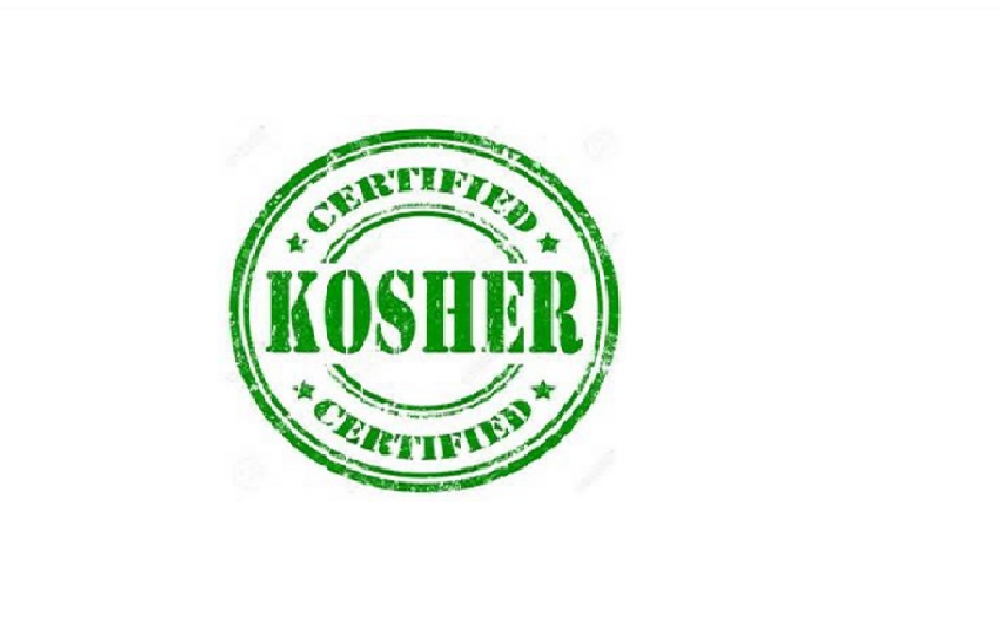The demand for kosher products in India has seen a remarkable surge in recent years. With globalization and the rise of conscious consumerism, Indian markets are witnessing an increasing number of consumers interested in products that meet kosher standards. This demand is not only driven by the Jewish community in India but also by a larger audience that values the quality and rigor of kosher certifications. This article explores the key factors behind the growing demand, the importance of kosher certification, and the potential for businesses in India to tap into this lucrative market.
Understanding Kosher: What Makes a Product Kosher?
Kosher, a term derived from Jewish dietary laws, signifies products that comply with specific guidelines found in the Torah. For a product to be considered kosher, it must meet strict standards of preparation, sourcing, and production. Kosher certification ensures that the food is free from any non-kosher ingredients, such as pork or shellfish, and adheres to the principles of separation between meat and dairy.
In recent years, kosher certification has gained traction not only for religious reasons but also because it represents a high standard of food quality and safety. Non-Jewish consumers, particularly those concerned about health, hygiene, and the ethical treatment of animals, are increasingly gravitating toward kosher-certified products.
Why Is There a Growing Demand for Kosher Products in India?
Several factors have contributed to the rising demand for kosher products in India. From the growing number of expatriates and Jewish tourists to the increasing health consciousness among Indian consumers, kosher products are seen as both a premium and a trusted option. Let’s explore these reasons in detail:
1. Increased Awareness of Kosher Certifications
More Indian consumers are becoming aware of the kosher certification process, viewing it as a sign of purity and quality. This is particularly true among vegetarians and vegans who look for kosher products because they often avoid animal-based ingredients and by-products. Additionally, kosher products are subjected to rigorous inspections and cleanliness protocols, appealing to health-conscious consumers.
2. Growth of Export Opportunities for Indian Companies
Many Indian food manufacturers are now catering to international markets where kosher certification is a key requirement. Countries like the United States, Israel, and parts of Europe have substantial Jewish populations, and exporting kosher-certified goods to these regions is a lucrative business opportunity. The kosher certification opens up doors to these global markets, making it a vital asset for Indian exporters.
3. Appeal to Diverse Consumer Groups
Kosher products are gaining popularity beyond the Jewish community. In India, kosher food appeals to Muslims who follow similar dietary laws, vegetarians seeking clarity about non-animal ingredients, and individuals with dietary restrictions, such as those with lactose intolerance or gluten allergies. The strict nature of kosher laws ensures that consumers know exactly what they are consuming, making kosher certification synonymous with transparency and trust.
4. Rise of the Packaged and Processed Food Industry
As India’s urbanization accelerates, the demand for packaged and processed foods has skyrocketed. Many of these products now carry kosher certification to appeal to a broader audience, both domestically and internationally. From snacks to beverages, kosher certification is increasingly seen as a marker of quality in a crowded market.
How Kosher Certification Agencies are Meeting the Demand
With the increasing demand for kosher products, kosher certification agencies in India are stepping up to the challenge. Agencies like Orthodox Kosher Supervision, Kosher India Certification Services, and other leading authorities are ensuring that Indian manufacturers adhere to kosher standards while streamlining the certification process. These agencies work with local companies, helping them navigate the complexities of kosher laws and providing the certifications necessary to export their goods globally.
Orthodox Kosher Supervision
Among the leading names in kosher certification, Orthodox Kosher Supervision plays a pivotal role in certifying Indian companies. Known for their strict guidelines and comprehensive inspections, Orthodox Kosher Supervision ensures that certified products meet international kosher standards. Their growing presence in India reflects the increasing importance of kosher certification for businesses aiming to reach global markets.
Challenges and Opportunities in India’s Kosher Market
While the demand for kosher products is growing, there are challenges that businesses must address to fully capitalize on this trend.
1. Lack of Awareness Among Retailers
Despite the rise in demand, many retailers in India are still unfamiliar with kosher products and certification. Educating both retailers and consumers about the benefits of kosher products will be crucial for further growth in this sector.
2. Complex Certification Process
Obtaining kosher certification is a rigorous process that involves inspections, ingredient tracing, and adherence to strict guidelines. For businesses unfamiliar with these processes, it can seem overwhelming. However, with the help of local kosher certification agencies, many of these challenges can be mitigated.
3. Growing Export Market
The potential for Indian manufacturers to expand into the global kosher food market is significant. As more countries emphasize food safety and ethical production, kosher-certified products are gaining a foothold. India’s position as a major food producer gives it a natural advantage, but businesses need to prioritize obtaining certifications and maintaining high standards of production.
How Indian Businesses Can Capitalize on the Kosher Boom
To fully capitalize on the growing demand for kosher products, Indian businesses need to take proactive steps:
1. Partner with Established Kosher Certification Agencies
Companies looking to enter the kosher market must partner with recognized kosher certification agencies, such as Orthodox Kosher Supervision. These partnerships will help businesses meet the necessary standards and expand their reach to international markets.
2. Leverage Export Opportunities
With kosher-certified products in high demand in countries like the U.S. and Israel, Indian businesses should explore export options. By obtaining the necessary certifications and ensuring compliance with international standards, businesses can tap into new revenue streams and establish themselves in the global market.
3. Educate Consumers and Retailers
Indian businesses should invest in educational campaigns to inform consumers and retailers about the benefits of kosher products. Highlighting the health, safety, and ethical advantages of kosher certification can further drive demand and solidify the position of kosher products in the market.
Conclusion
The demand for kosher products in India is on the rise, driven by growing consumer awareness, export opportunities, and the appeal of high-quality, ethically produced goods. Indian businesses stand to gain significantly by embracing kosher certification and meeting the needs of both domestic and international markets. With the right partnerships and strategies, India can become a leading supplier of kosher products in the global market.




